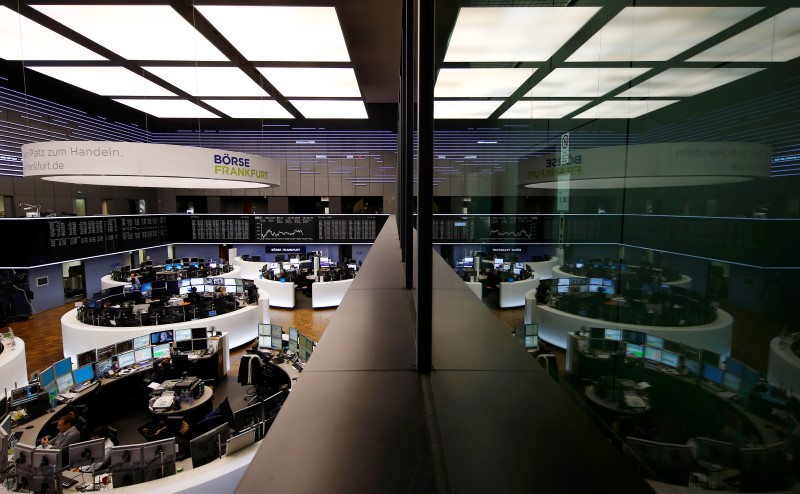By Nigel Stephenson
LONDON (Reuters) - European shares fell on Monday, unable to maintain the momentum that took Asian equities to two-month highs after upbeat U.S. jobs data and as oil prices rose further.
Chinese shares rose for a fifth consecutive day as reassurances by the country's leaders that the economy would remain on a sound footing soothed investors investors' concerns.
The dollar rose against most of its peers, except the Japanese yen, as markets priced in a higher chance the Federal Reserve would raise interest rates this year and U.S. Treasury yields edged higher.
The pan-European FTSEurofirst 300 index (FTEU3), which rose 0.7 percent on Friday after the jobs report, fell 0.6 percent but is still up around 7 percent this year. Britain's FTSE 100 (FTSE) also lost 0.6 percent.
Asian shares generally rose. MSCI's broadest index of Asia-Pacific shares outside Japan (MIAPJ0000PUS) rose 0.4 percent to its highest since Jan. 4. It has recouped about 80 percent of its losses since the start of 2016.
Japanese shares snapped a four-day winning streak as the yen strengthened and investors took profits on last week' sharp rally. The Nikkei 225 index (N225) closed down 0.6 percent.
Chinese shares rose after Prime Minister Li Keqiang spelled out on Saturday a new five-year economic plan, which included an average growth target of 6.5 to 7 percent and a moderate increase in the fiscal deficit to 3 percent of GDP this year.
"Chinese investors weren't expecting big fiscal stimulus at all so there's no disappointment there," said Naoki Tashiro, president of TS China Research.
The CSI300 index (CSI300) of the biggest listed companies in Shanghai and Shenzhen closed up 0.4 percent and the Shanghai Composite rose 0.9 percent.
Friday's forecast-beating U.S. payrolls data, that saw 242,000 jobs created last month, assuaged fears that the U.S. economy could be headed into recession.
Market prices suggested no prospect of the Fed raising rates this month but a 50 percent chance of a June hike, according to CME Fedwatch.
However, an unexpected fall in average earnings soothed concerns that the Federal Reserve would be in a hurry to raise interest rates.
The data and its implications for the global economy helped lift oil prices, which were also supported by a fall in the number of active U.S. rigs for the 11th week in a row to its lowest since 2009.
Brent (LCOc1), the global benchmark for crude prices, was up 34 cents at $39.06. It has risen more than a third from this year's lows, though analysts caution that the glut that saw it fall 70 percent from June 2014 levels remains.
RAMP UP
The dollar rose 0.3 percent against a basket of currencies (DXY), with the euro off 0.5 percent at $1.0946. Investors anticipate the ECB will cut its deposit rate by at least 10 basis points to -0.4 percent and ramp up its 60 billion euros a month asset purchase programme.
"There is still a higher likelihood that they overdeliver and the euro goes down to around $1.08, maybe the high $1.07s," said Ulrich Leuchtmann, head of currencies research at Commerzbank (DE:CBKG) in Frankfurt.
"But for traders it is still tricky. Clearly there will be a much bigger move if they do not deliver."
The yen bucked the trend and rose 0.2 percent to 113.58 per dollar.
German 10-year Bund yields <DE10YT=TWEB> fell 2.5 basis points to 0.21 percent.
U.S. 10-year Treasury yields (US10YT=RR), which rose after Friday's jobs data, eased on Monday and were last up 0.1 basis points at 1.89 percent.
Copper fell from four-month lows and was last down 1.1 percent at $4,974 a tonne.
Gold <XAU=> rose and was last at about $1,266 an ounce.
